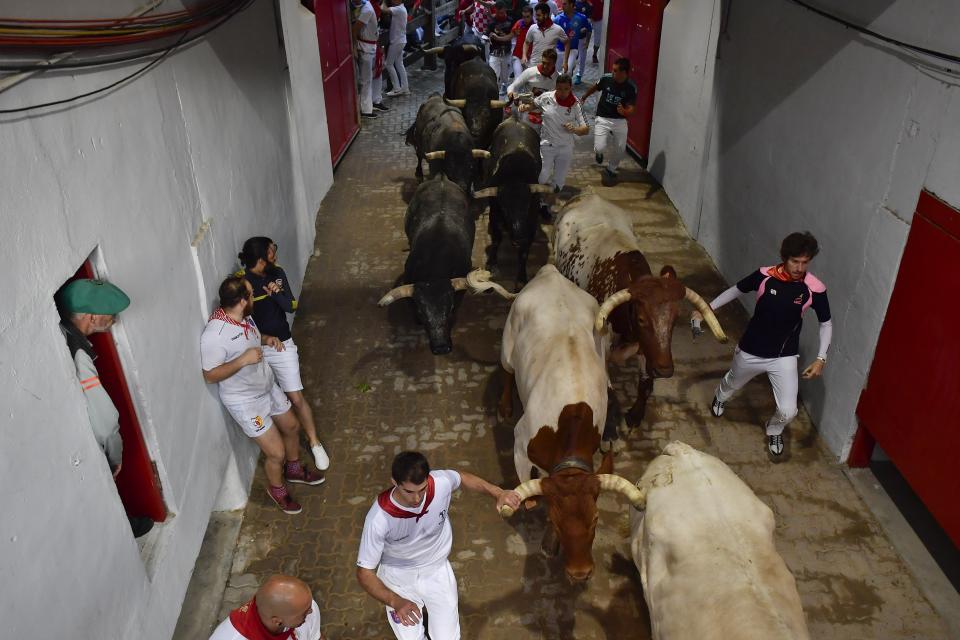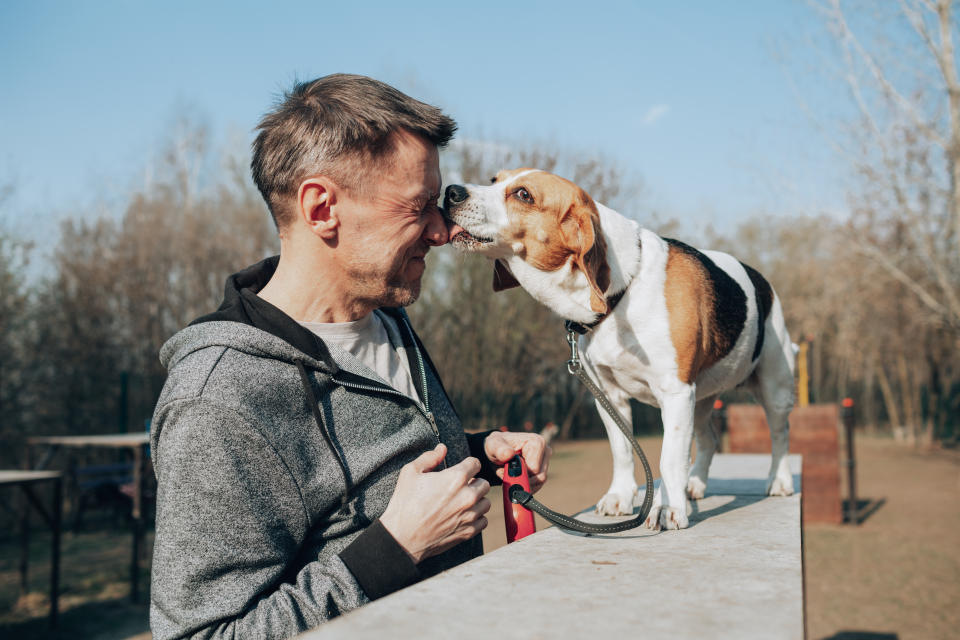'The silver lining to coronavirus lockdown? Animals are enjoying a respite from human tyranny'
Elisa Allen is Director of PETA UK, a charity dedicated to establishing and protecting the rights of animals. This month marks her tenth year working for PETA. The views and opinions expressed in this article are her own and do not necessarily reflect the views, opinions or positions of Yahoo UK and its affiliates.
Amid the storm clouds of COVID-19, there's at least one silver lining: we may emerge from this crisis knowing that a more compassionate world is possible.
Many cruel industries have been shut down, at least for the time being.
Life has gone on without them, and many animals are enjoying a respite from human tyranny for the first time in their lives.
If ever there were a "non-essential" activity, whipping horses and forcing them to jump dangerous obstacles, causing them to shatter their ankles and break their necks, surely qualifies.
So it's good news that we’ve turned to virtual horse races this year - meaning happy punters can still watch but no animals are injured or killed.
COVID-19 has put the kibosh on bullfighting, too. In Spain, hundreds of bullfighting events have been shut down already – including Pamplona's annual Running of the Bulls – preventing thousands of bulls from being stabbed to death.

Read more: Latest coronavirus news and updates
More than 80% of Spanish people oppose cruel bullfights and bull runs, so why bring them back once the lockdown is lifted? Haven't we all seen enough suffering and death? Intentionally causing more is – and always has been – inexcusable.
Animals have suffered for human whims since time immemorial.
They've been displaced and their homes destroyed by our relentless developments. They've been crushed under our bulldozers, cars, and lorries. But much of the human population is staying at home right now, and wild animals are finally enjoying some peace in their rightful homes.
In Panama, raccoons are frolicking in the surf. With Mexico's resorts empty, jaguars and crocodiles have returned, and a leatherback sea turtle laid her eggs on a now-deserted beach.
Lambs played on a roundabout in an empty playground in Lancashire. In North Wales, wild goats have been congregating in the streets and nibbling fresh grass, much to the delight of human residents watching from their windows.
Read more: The five things that need to happen for coronavirus lockdown to be lifted
There will be risks to manage when society reopens: birds such as little terns are building nests in areas that are currently deserted, and they'll be in danger of being disturbed and trampled when normal life resumes.
After seeing how nature flourishes when humans simply leave it alone, let's hope our species will resolve to tread lightly when we re-emerge from self-isolation.
All life on our planet is benefiting from the decrease in pollution levels brought on by the shutdown of non-essential services.
Satellite data showed a significant decline in nitrogen dioxide levels over China during Wuhan's quarantine.
But even when we go back to working, flying, and driving, we can help to maintain this climate-friendly trajectory by going vegan.
A University of Oxford study found that globally, the meat and dairy industries generate 60% of agriculture's emissions while providing only 18% of calories and 37% of protein. If all of us went vegan, we could reduce food-related greenhouse-gas emissions by two-thirds by 2050.

Read more: Yosemite releases footage of bears, deer and other animals roaming with no humans around
The pandemic may already be moving us in this direction: supermarkets have closed their meat and fish counters, and many of us have been eating healthily – and cheaply – using staples such as frozen vegetables, tinned beans and other vegan foods.
Quarantine cooking has proven that there's nothing essential about cruelly-produced, unsustainable animal-derived foods.
And as scientists race to develop a vaccine against COVID-19, the need for accuracy and speed is potentially sparing animals' lives: the US National Institutes of Health bypassed an animal testing phase and went straight to human volunteers.
Scientists in India are researching possible vaccines using advanced computer simulations, and researchers in Bristol are using cells – rather than mice – to study the spread of the disease.
This research is not only humane but also our best chance of success, considering that 90% of experiments on animals fail to lead to human treatments.
The COVID-19 crisis has also given many dogs, cats, and other animals a chance at a happier life.

Battersea Dogs & Cats Home reported that in the week after the outbreak was declared a pandemic, more than double the number of cats and dogs were adopted than during the same week in 2019, and other shelters experienced a similar upsurge in interest.
Many animals who were previously left alone all day while their owners were at work are finally receiving the companionship, attention, walks, playtime, and love they deserve.
While we're all looking forward to the end of the pandemic, it would be a shame if we learned nothing from it.
Let's use this time to consider how we can be kinder global citizens – not just toward each other but toward all who live on this planet.
Compassion for animals can be our new foundation for a better world.
Latest coronavirus news, updates and advice
Live: Follow all the latest updates from the UK and around the world
Fact-checker: The number of COVID-19 cases in your local area


